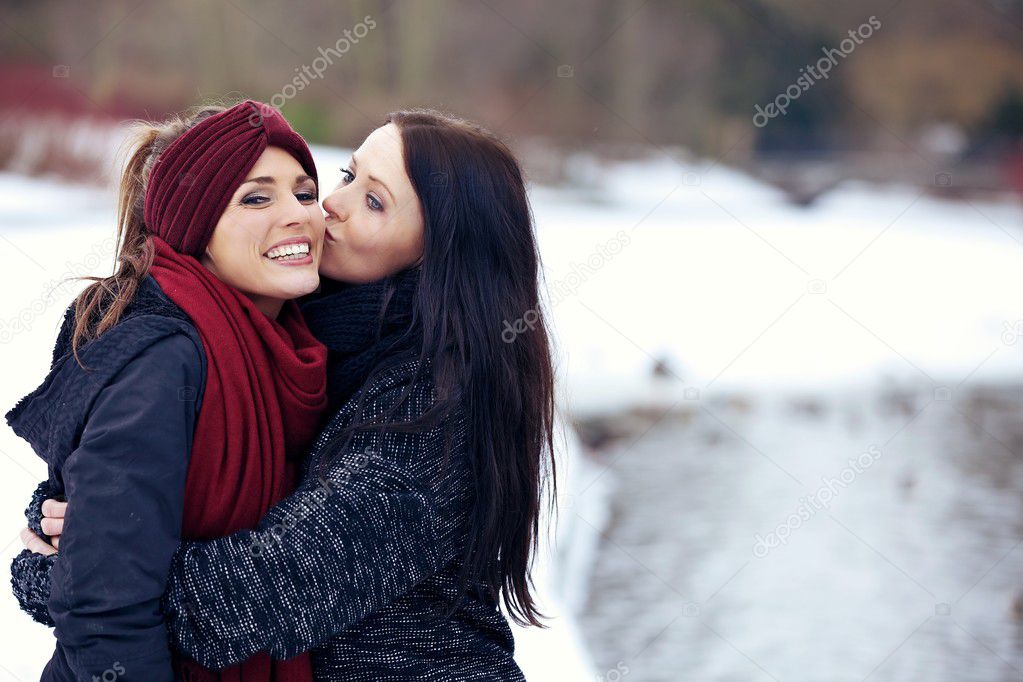Two of my good friends are Asian immigrants. My friend, Iris, is an immigrant to the U.S. from Hong Kong, and my friend Jin immigrated from South Korea and, after working here for a few years on a visa, has recently become a U.S. citizen. Occasionally, when we are together, questions about American culture come up. One day, Jin asked me how Americans prefer to greet each other, with handshakes, hugs, cheek kisses, something else? I answered, "We (ourselves) don't know."
My answer might not be entirely true. With your good friends, you do have an idea what form of greeting is comfortable for them, but you may not know what to expect with every friend or acquaintance in your circle. You have this moment where you try to gauge whether your friend is extending a hand or opening his or her arms or read your friend's body language in some way. Every so often, this confusion leads to some social awkwardness. As a child, I remember one of my older brother's female friends running across the church foyer to greet me with her arms open wide. When, out of shyness, I didn't extend mine, she dropped hers to her sides and gave me an embarrassed, "Hi." (Perhaps I remember this moment, because I regret making her feel awkward.)
It does seem to be true that there is not one preferred greeting for all Americans, and maybe that is because we are such a melting pot or tossed salad (whichever analogy you prefer) of cultures ourselves.
At this point in my life, I am a bit of a touchy feely type with a tendency to touch people's arms or shoulders when I talk to them. Not everyone is equally comfortable with this show of affection. One of my college roommates had to confess to me that my little touches were driving her nuts. Of course, I did my best to refrain after that. Even Solomon says, "There is a time for embracing and a time to refrain from embracing." All of my close female friends, including the two mentioned in the first paragraph, are comfortable with hugs, and several of my male friends are also very warm and greet me with hugs.
In recent times, there are many men in my acquaintance, including politicians I know through my newspaper work, that like to give cheek kisses. As comfortable as I am (usually) with hugs, I am not quite accustomed to the cheek kisses. They often come by surprise, and the moment ends before I have fully decided how to react. My response is getting (perhaps) slightly improved. I extend my cheek in the correct direction, but my lips are usually slow to do anything before the moment is past. I often do not know whether to expect air kisses or for lips to touch me. Some women also greet friends with cheek kisses of both varieties. In one of my more awkward moments with one of my male acquaintances, I zigged when he zagged, he hugged my neck, my lips ended up squashed against his whiskers and, still, my lips did nothing.
While I was still a college student, I spent one summer teaching English in Hungary where the custom is to touch cheeks on both sides and give air kisses. As I presented one of my classes with their graduation gifts, walking around the circle, giving fountain pens to the men and handmade necklaces to the women, one woman, the second student in the circle, stood up and gave me cheek kisses as I presented my gift to her. This started the pattern for students' behavior as I continued around the circle of students. When I had finished, the first student, a young man in his twenties, stood up saying, "Bocs, bocs," pronounced like "bawch." This was a shortened form of "bocsánat" or "sorry." I suppose it is the American English equivalent of "'Scuse, 'scuse." Now, he felt awkward for neglecting to do what the rest of the class had done, and I had to return to him for my cheek kisses. My oldest Hungarian student, a grandfatherly man in his eighties, would sometimes kiss the back of my hand.
I really enjoyed my time with the Hungarians who showed all of the teachers a lot of warmth and hospitality, bringing us flowers and fruit from their gardens, inviting us to their homes and giving us tours of the local sights. My grandfatherly student brought me chocolate and took me out for ice cream on my name day.
I took two years of Russian in college. I did very well in my classes, but to say that my Russian language skills are now rusty would be an understatement. That is too bad, because I work in a community where there are many Russian immigrants and I might have some use for it. I walk down the street where I work, look into shop windows and sometimes try to make out the titles in Cyrillic alphabet on book and DVD covers.
One of the classmates in my Russian class had a very funny story about cross-cultural greetings. He had traveled with a singing group from the college to the Ukraine. It is the custom there for male friends to greet each other with kisses on the mouth. In that culture, it is an appropriate greeting between friends, but this is quite uncomfortable for American men! My classmate explained that when any of the American men in his group anticipated a kiss from one of the Ukrainian men, they would quickly turn their face to get the kiss on the cheek. After one concert they gave, one man in the audience was particularly appreciative. He seized one of the American men by the ears, told him "хорошо," (pronounced like har-a-shaw except with a guttural H as in l'chaim), or "good," kissed him right on the mouth and repeated the process twice. "Хорошо!" Mwah. "Хорошо!" Mwah. As much as I feel for this American man's discomfort, this little anecdote still makes me laugh!
I included the photo below of Russian gymnasts, because I can remember watching Olympic games and seeing Russian gymnasts kiss their coach on the mouth.
If you are an American, please tell me if you agree with my assessment. If you are not an American, please tell me in the comments about the greeting customs where you live.






No comments:
Post a Comment